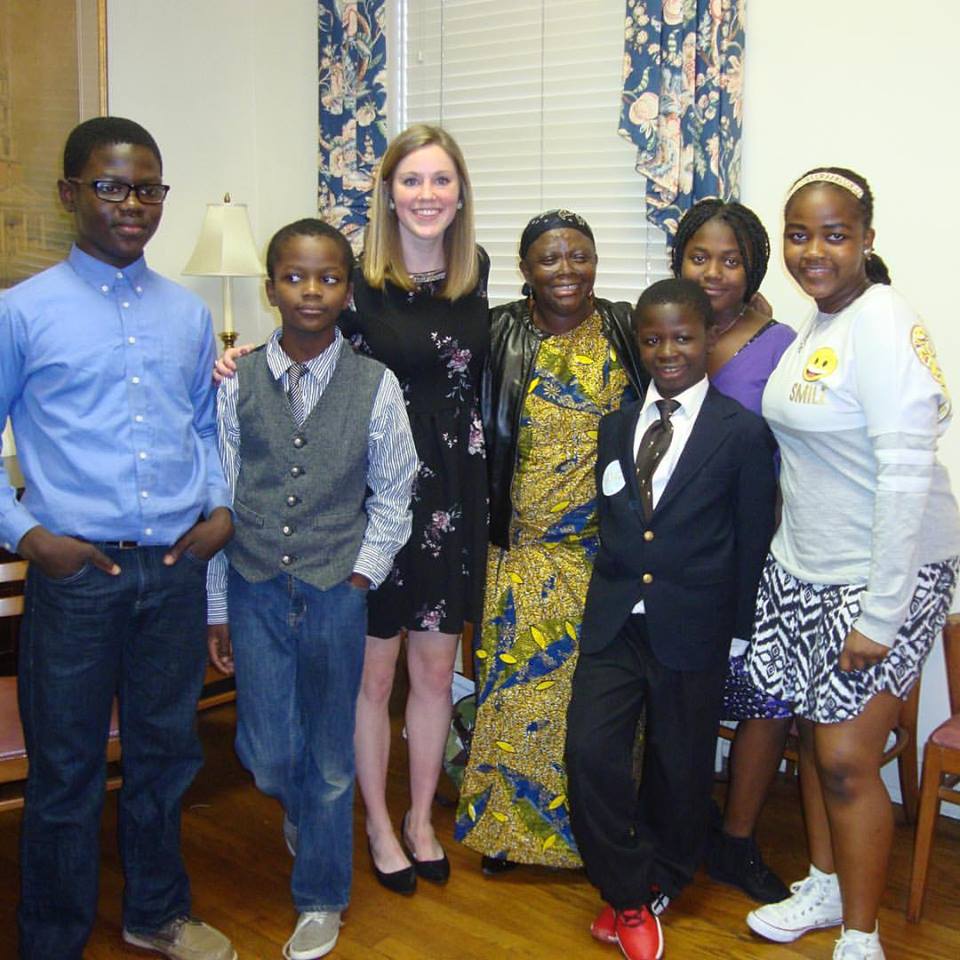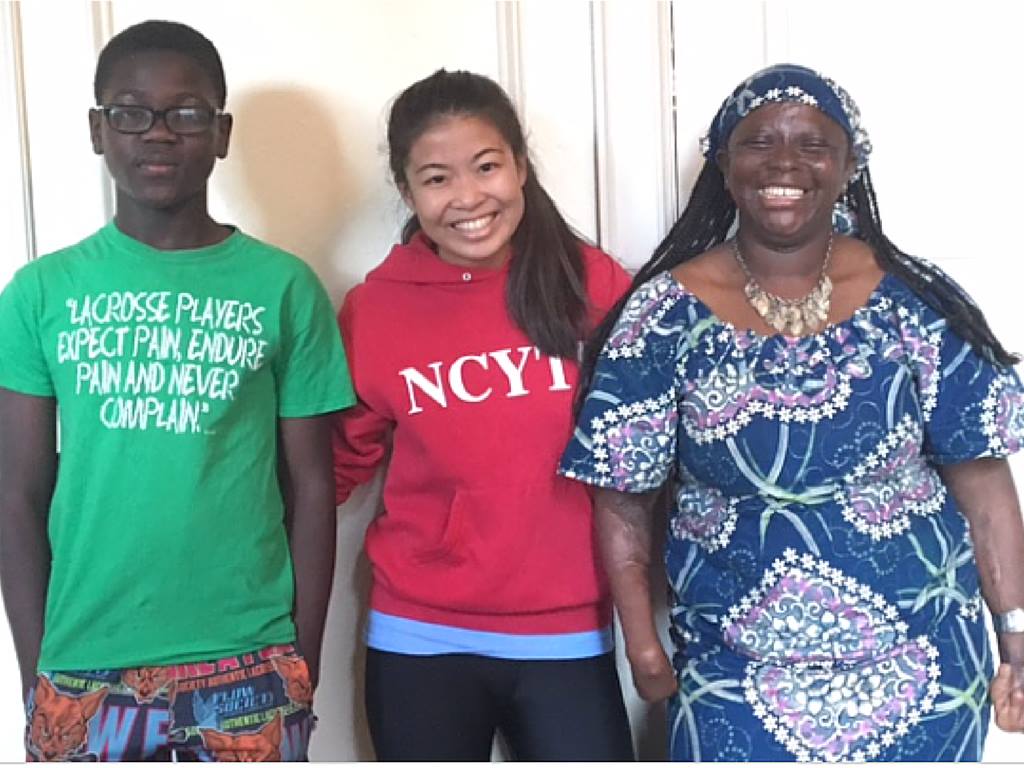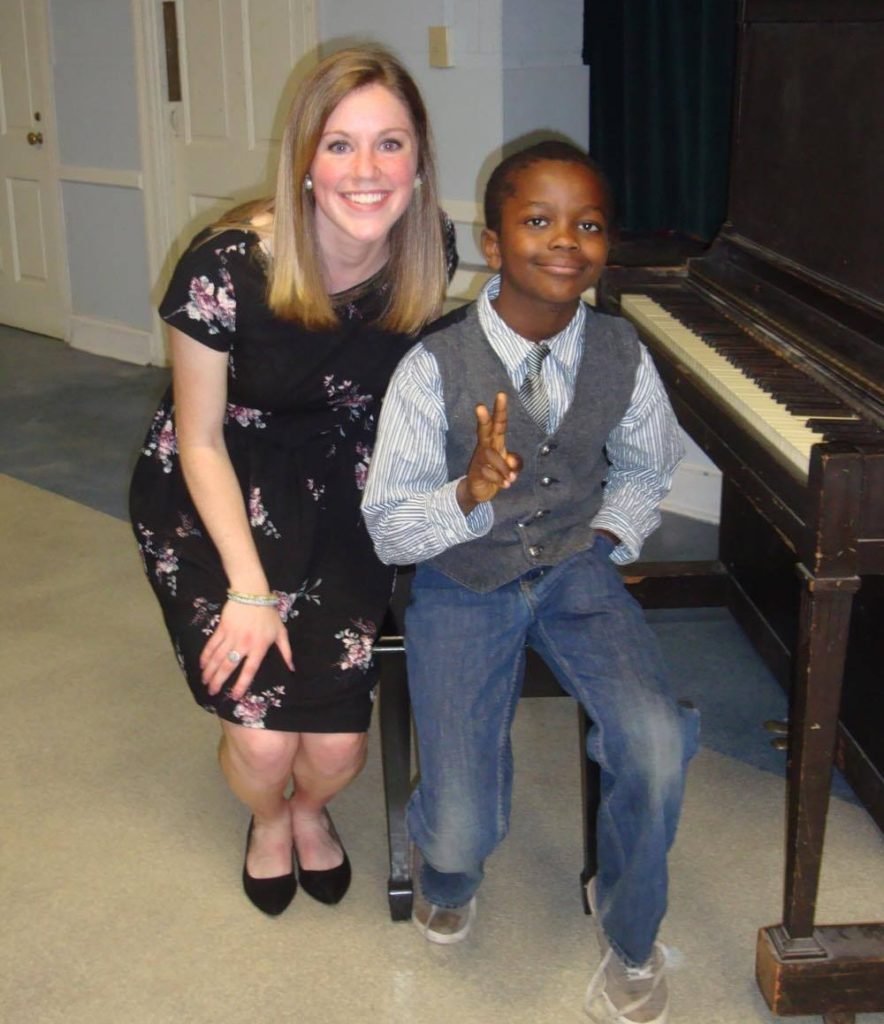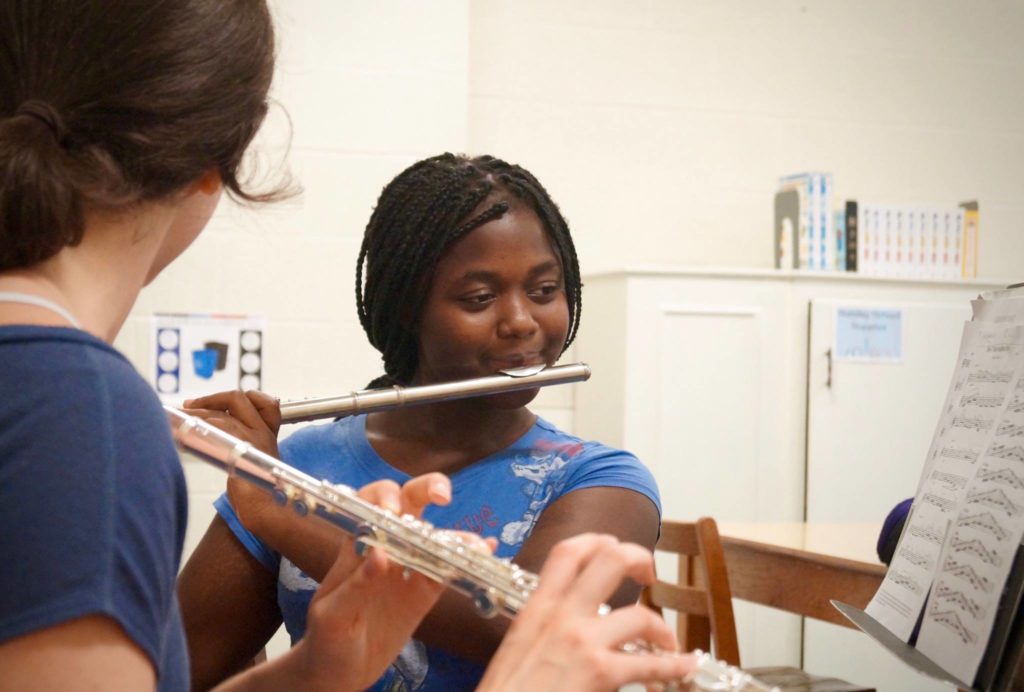Lessons in Music and Hope
November 29, 2016
I met Berthe Mairounga on a Friday in September 2015. Through Musical Empowerment, I was paired with her son Moustapha to be his piano teacher. Before we began Moustapha’s first lesson, Berthe gave me her cell phone number and asked me to write mine down. It was not until she slid a piece of paper towards me that I saw that she no longer had fingers, and I knew she must have been the victim of something unfathomable. This was no birth defect. Her fingers had been removed– without surgery. As I looked up to thank her, her scarred face lit up with a smile.
There were so many questions I wanted to ask her. Where was she from? How did she come to live in Chapel Hill? Why is her face scarred? What happened to her hands? But, I could not ask those questions. I did not want to offend her or come across as insensitive. I could not imagine what she had experienced, and I knew there was no casual way to ask. There shouldn’t be, especially not on the first meeting. Despite my curiosity and Musical Empowerment’s emphasis on connecting with the child’s family, I did not hear her story until two months later.

Berthe and her five children with Molly, Moustapha’s Musical Empowerment piano teacher.
Berthe grew up in Chad, a country bordering Sudan and Libya in northern Africa, amidst a brutal civil war. Chad has been marked with political unrest and has been engaged in civil wars for over forty years, between the Arab-Muslims in the north and Christians in the south. In the mid 1970s, Libya became involved. Later, in 2004, the fighting in the Darfur region spread across the Sudan-Chad border.
Growing up, Berthe was not allowed to attend school but was instead consigned to farm labor. In 1989, she married the man her father chose for her. She was 13. Two of her seven children from that union passed away. In 2006, soldiers stormed her home. They took Berthe’s husband for the army, but he escaped and returned home.
Soldiers returned to her house, where her husband was hiding, and demanded that Berthe tell them where her husband was. With her children huddled around her and an infant in her arms, Berthe said she had not seen him. They continued to question her, with increasing force and anger. They tied her hands. They burned her. But Berthe continued to lie to protect her husband and her family. The flames burned through the skin on her face, exposing bone, and nearly destroyed her hands. I could barely continue to ask questions as the lump in my throat grew bigger and tears filled my eyes. She spoke calmly and openly, and sometimes she struggled to find the words to explain everything that happened. The soldiers searched the house and seized her husband. Berthe and her five children ran for their lives. With no mode of transportation, no one to rely on, and no money, the family only had one option: to walk to safety. Leaving Bousso, Chad, in August of 2006, they walked southwest for two months until they reached Ngaoundéré, Cameroon, in October. (Though Berthe does not remember the exact route they took, it would be a minimum of 500 miles traveled, including a ferry crossing at the border of Chad and Cameroon.) [click for map] After relentless searching and prayer, Berthe found her father in Cameroon. Her father found her a husband, but Berthe refused to remarry even after she had a child with this man. At this point, Berthe had six children to feed but no way to feed them. She could not use her hands, so she could not find work. She begged for money, and she hated it. She detested idleness, so she decided to try to move to America. “Everyone in my refugee camp thought I was crazy,” she tells me with a chuckle.
Berthe told me her story with a tone that suggested she was recounting the events of any ordinary day. But the political environment in which she grew up, the difficulties she faced every day, the violence she witnessed– those were her “ordinary” days. People sought to convince her to stay in Cameroon. They reminded her of the thousands of people who were unable to succeed in moving to America, where they assured her life would be more difficult. Loads of paperwork and three months later, Berthe received incredible news: the U.N. was bringing them to America, where they would be provided government assistance. On September 22, 2010, Berthe Mairounga and her children stepped foot in the United States. She could only return each warm “hello” with a blank stare. She did not know a single word of English.

Five years later, she tells me her story beautifully. In November of 2015, Moustapha and his family came late for their weekly music lessons with Musical Empowerment. Berthe apologized but was beaming. While Moustapha and his brother Prosper ran around the hallway in American flag bandanas, Berthe told me that they had just come from her citizenship ceremony. After I asked where she was originally from, we sat down, and she shared her life.
With the help of Church World Service in Durham, North Carolina, Berthe became settled in Chapel Hill. Through Orange Literacy in Carrboro, North Carolina, Berthe learned English and studied for her citizenship test. Now, Berthe is taking GED prep classes. Her work ethic is inspiring, and she is instilling this and the importance of learning in her children. “I want my children to learn something,” she said. “That’s why they started playing instruments.” Berthe loves music too and often sings in French at home.

Every week, I teach piano lessons to Moustapha, Berthe’s second youngest son. The infant she held as soldiers stormed their home. The infant she held as she walked for two months to safety. While Moustapha often has trouble focusing, his sense of humor and eagerness to learn are a joy to be around. He is smart, clever and gifted. In our weekly lessons, we are currently working on sharps and flats, key signatures, and moving beyond middle C as a starting point. Sometimes we spend the entire lesson trying to name notes, and sometimes I get frustrated. Yet, he always finds a way to make me laugh and revel in the task of trying to push him towards a mental breakthrough, no matter how long it takes to reach it. He asks me about the math behind music and tells me facts about outer space. Moustapha overcomes every challenge, ready to face the next.

His determination is a small glimpse into that of his mother’s. She has a will too strong to let her spirit be broken. She has overcome more obstacles than most of us will ever encounter, and she never gave up. Berthe embodies resiliency. I do not know everything she faced during those two months of walking. I do not know what violence she witnessed. I cannot begin to understand the emotional and physical pain she was in. I cannot imagine the terror of what happened in 2006. However, I can be thankful that I have the privilege of knowing such a wonderful woman and her family. Thank you, Musical Empowerment, for this opportunity. I wish the world could sit down with Berthe like I was able to, and hear the gentleness and strength in her voice as she speaks of how grateful she is to be here, how she still loves her husband who she has not seen in ten years, and how she never gave up hope.
Learn more about how you can support our Musical Empowerment families here.